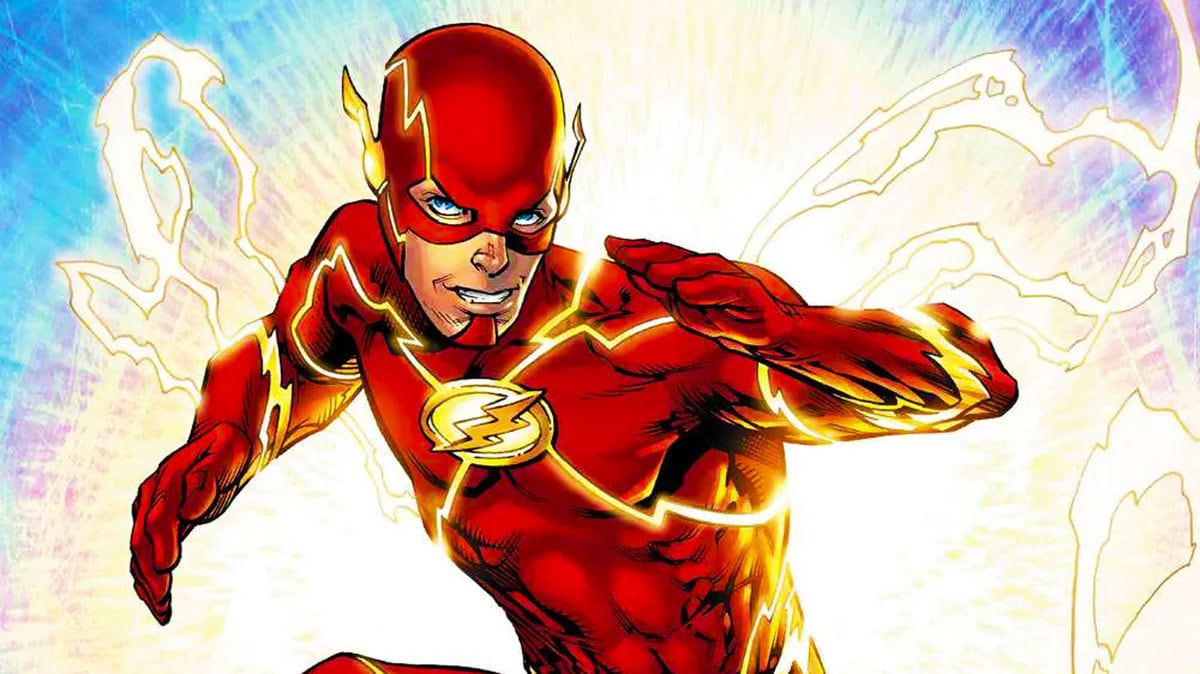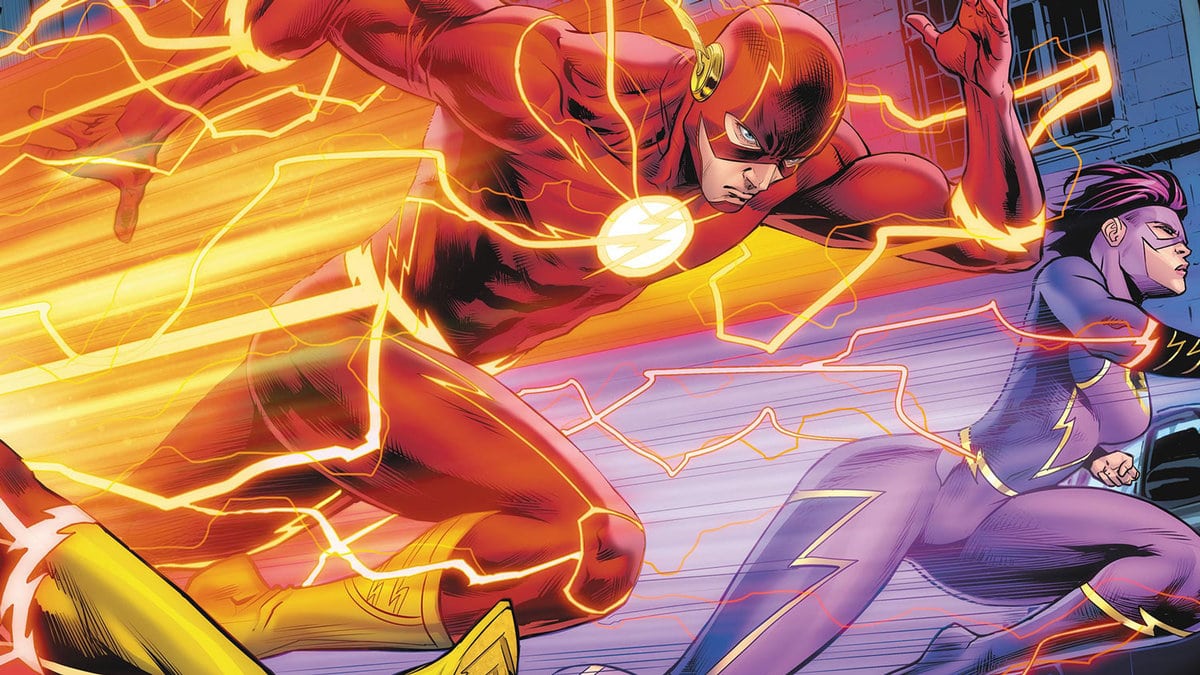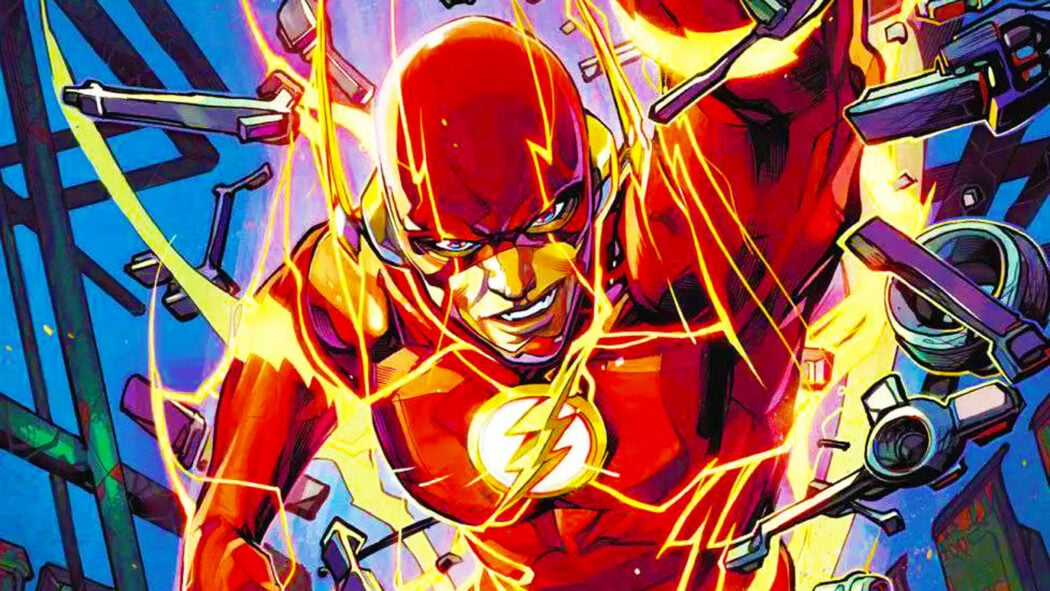The Flash movie has been suffering so much behind-the-scenes drama that people are now sadly used to expecting bad news when the movie’s mentioned online. It’s also worth noting that DCEU fans have been given *very* little to no content to enjoy lately: when something related to the DCEU pops up online, it’s most of the time new emerging drama instead of something to celebrate. Adding to the drama, constant artistic changes, and the obvious lack of clear global vision, I feel like we’ve entered a really depressing time for onscreen DC. As a die-hard DC fan, it breaks my heart not to have more content.
Well, not today, folks! DCEU fans have a little something to be excited about! The first issue of the three-part limited comic series, The Flash: The Fastest Man Alive #1, acting as a DCEU-canon prequel to The Flash, just got released! And I think it’s a shame that so few media outlets are failing to mention it. It would have been an excellent opportunity to actually bring something new and positive to the table, instead of the monthly drama. But here we are!
What’s the new comic book all about?

Credit: DC Comics
READ MORE: Daredevil Season 4 Potential Release Date, Cast, Story & Everything You Need To Know
What’s The Flash: The Fastest Man Alive #1 about? Is it part of the Snyderverse or the Hamadaverse? Does it spoil the movie? Do you need to have read the comic to understand the upcoming movie? Let’s investigate.
Initially planned to be released in April 2022, the delay of the movie and the multiple accusations against its lead actor ultimately led to it being delayed to September 2022. I was personally really looking forward to reading it, because I wanted to see if it would give more insight and clarity to the character, all while filling the gaps between the last time we saw him and his solo movie. In that sense, the comic does serve its purpose.

Without spoiling anything, just know that the comic explains some things we saw in the DC FanDome trailer: how Barry got his Flash ring and his new suit, both aspects that fans are going to discover in theatres next year. We also learn how he kept in touch with Ben Affleck’s Batman and what kind of relationship they both had prior to The Flash.
What timeline does this new Flash comic belong to?

Credit: DC Comics
READ MORE: Peacemaker Season 2 Potential Release Date, Cast, Story & Everything You Need To Know
Well, here’s when it gets confused. From what I understood while reading it, it seems to me that the comic doesn’t really know, or at least doesn’t want to clearly acknowledge which version of the character and timeline it’s presenting to us: Is it 2017’s Justice League timeline (the “Hamadaverse”) or is it the Snyder Cut’s timeline (the Snyderverse)? Prior to this comic, did Barry push a truck, or did he save the Earth from Darkseid using the speed force? The reader has no way to know, and I honestly feel like it’s purposefully done to fit whatever timeline Warner Bros. Discovery will choose to follow so that the comic works either way.
As of right now, David Zaslav is endlessly reworking every live-action project currently in development to go in the exact opposite direction from the previous regime. This means that no one has a way to know what is actually “DCEU canon”. This remains to be seen in The Flash, still scheduled for a theatrical release in June 2023.
Does “The Flash: The Fastest Man Alive #1” spoil the movie?

READ MORE: Moon Knight Season 2 Potential Release Date, Cast, Story & Everything You Need To Know
While some think it spoils the movie far in advance of its release, I personally don’t feel like it does. All it does to me is give extra information ahead of the movie, to allow the reader to walk into the theatre knowing what happened between the last time they saw Barry Allen (whether it’s 2017 or 2021) and the movie. Whether it’s 2017 or 2021, it’s been a while since the audience has last seen the scarlet speedster on the big screen (he did make a cameo in Peacemaker), so the comic acts as a bridge between past and future Barry. Wich Barry the movie will present to us remains a tense surprise.
There’s no particular need to read the comic to understand the movie, it’s more like an introductory bonus. I personally enjoyed it for the additional information it provides. But I was saddened to see that what’s happening behind the scenes of this studio literally appears on the pages of the comic itself. The fanbase being well aware of the management issues currently going on, they’ll undoubtedly notice the details the comic is trying to blur.
What do you make of this story? Let us know in the comments below or on our Facebook, Twitter or Instagram pages! And if you enjoy listening to film podcasts, why not check out our podcast, The Small Screen Podcast, wherever you get your podcasts!


















There are no comments
Add yours